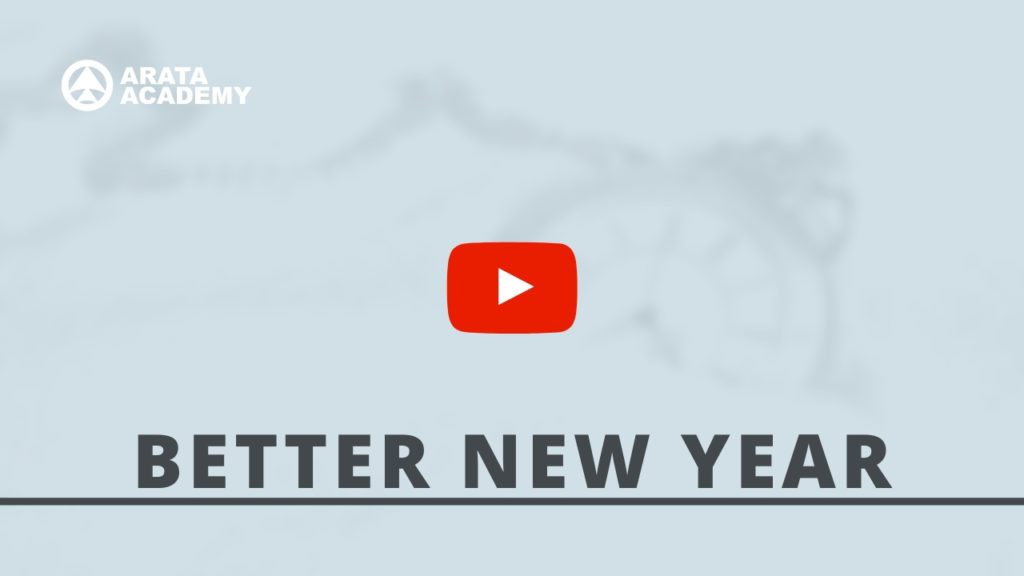Hello! Seiiti Arata. You know from personal experience that when you have discipline, you get what you want. The difficulty is to find the discipline when you need it. Anyone who wants to live an above-average life can choose several paths, but they will all require one thing: discipline.
Discipline is nothing more than obedience to a series of rules. This is why many people feel resistance to discipline.
This can change if you intentionally decide to live by your own rules. You can decide to take control of your future and guide your life exactly where you want it.
Discipline is what separates those who have results from those who only have excuses.
Think now about your dreams. The dream of having a distinguished career, the money to provide comfort for you and your family, the dream of being fit and healthy, the dream of mastering some intellectual or artistic skill…
Whatever your big dream might be, that goal will only come true if you have the discipline.
When you have discipline, you do what needs to be done and you will reap results. The person who has no discipline simply does not do what has to be done, gets no results and will only have excuses, blaming others and using circumstances to justify themselves.
Great achievements do not fall on our lap. We need to pursue goals in an orderly, consistent and resilient way so that we do not give up and overcome obstacles.
Discipline is one of those words that we think we need not explain, because we all have a sense of what it means to be disciplined.
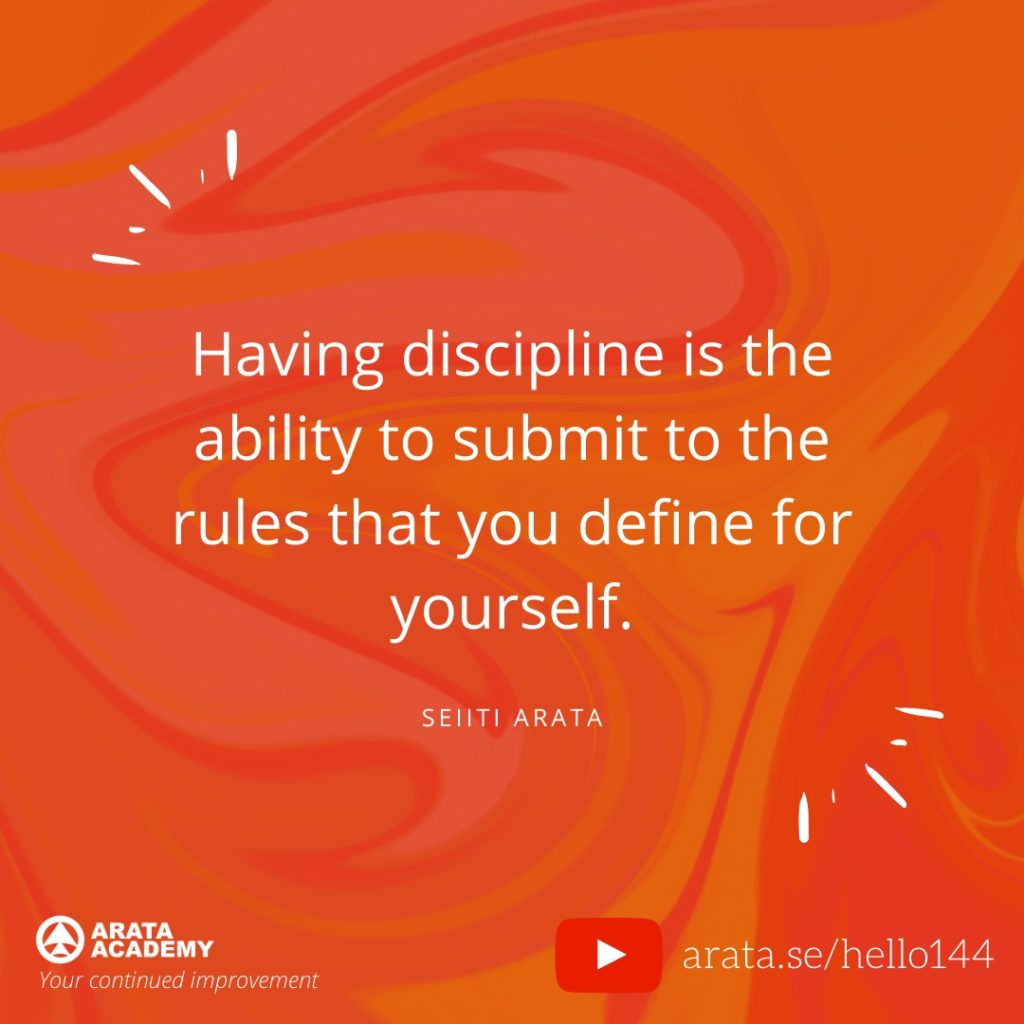
To be very practical, let’s define in our conversation that discipline is the ability to submit to a series of rules that we have set for ourselves to achieve certain goals.
For example, let’s say you want to learn a new language. You create a series of rules for yourself. You say you will study one hour a day three times a week at home and will attend a course on two other days of the week.
Discipline will happen when you abide by these rules. It will be putting the plan into practice: actually study the new language for an hour three times a week and actually attend the classes of the course you enrolled in. That’s it. With discipline, you do what you need and get results.
Think of some goal that you have tried and failed to achieve. Lose weight, change jobs, stop drinking. Whatever. It is very likely that the reason for your failure was the lack of discipline, the inability to follow the rules you would have to follow to achieve these goals. Without discipline, you will only make excuses and try to blame others or victimize yourself, justifying the lack of results.
Important! Do not confuse the pursuit of discipline with suffering.
Discipline is freedom, not imprisonment.
We often think that discipline is a kind of prison. We have to study so many hours a day. We have to eat this and we can’t eat that. We have to follow rules and more rules.
It is true that, at first, discipline may seem like a prison. But this only happens because there is a lack of clarity about what we really want. What do you want? Have fun watching amusing tv shows and “wasting time” or want to study to acquire a valuable skill? Do you want to eat that candy … or do you want to exercise?
The work of clarifying what we really want is fundamental. We need to reframe, give new meaning to discipline. When your choices are in line with what you really want, then discipline becomes a natural path that leads you to freedom and fulfillment.
When this happens, everything is much easier. Studying becomes a habit. Eating the right foods becomes almost automatic. Rules are now seen as a help, a way to make your day easier, not a hassle anymore.
Are you interested in reframing the idea of discipline and being more clear about what you want? This requires understanding the three phases of change.
Three stages to becoming a disciplined person.
To become a disciplined person, you have to go through a three-phase transformation process: awareness, action, and discipline.
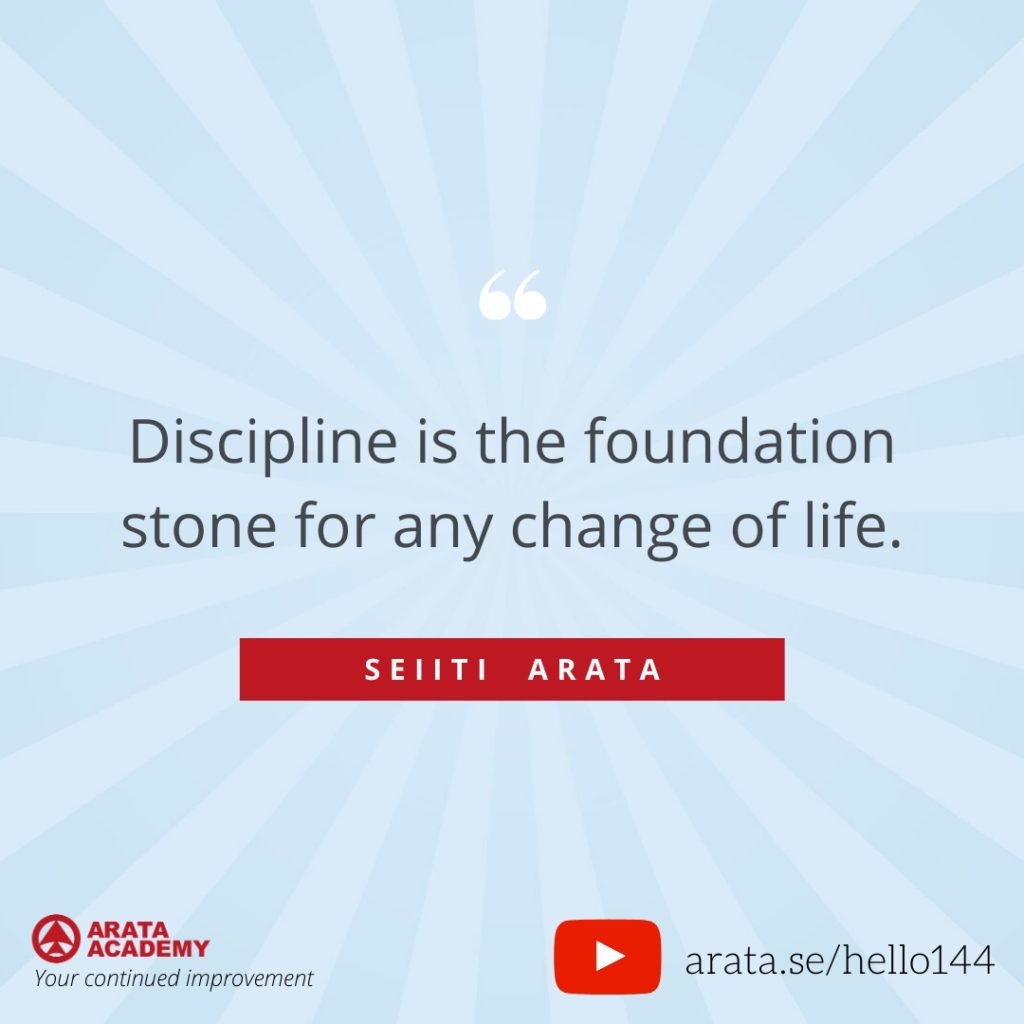
The first phase happens when you become aware that you need to change something in your life. The second phase happens when, driven by willpower and that initial excitement, you begin to act to change.
We have all been through these initial two phases at some point. Here are some examples of going through the phases of awareness and action:
That’s when we see some ugly body fat in the mirror and stop eating certain types of food. That’s when we want to be smarter and start reading a good book. That’s when we decide to spend less time on the internet and turn off the phone.
But only awareness and action are not enough. Without discipline, change does not materialize. The problem is that the initial excitement soon goes away… and then we get back to eating what we shouldn’t. We put the books aside. We waste hours surfing the internet again.
This is because willpower is a limited resource and we need to know how to have discipline to overcome this limitation. Willpower helps us have an initial spark, but it alone cannot sustain the whole process of transformation.
Think for example of New Year’s resolutions. When we are motivated by the change of year, we set bold goals and start the year well by doing things differently. But by the end of January the excitement is no longer the same. By February the willpower has run out and we are doing everything as before.
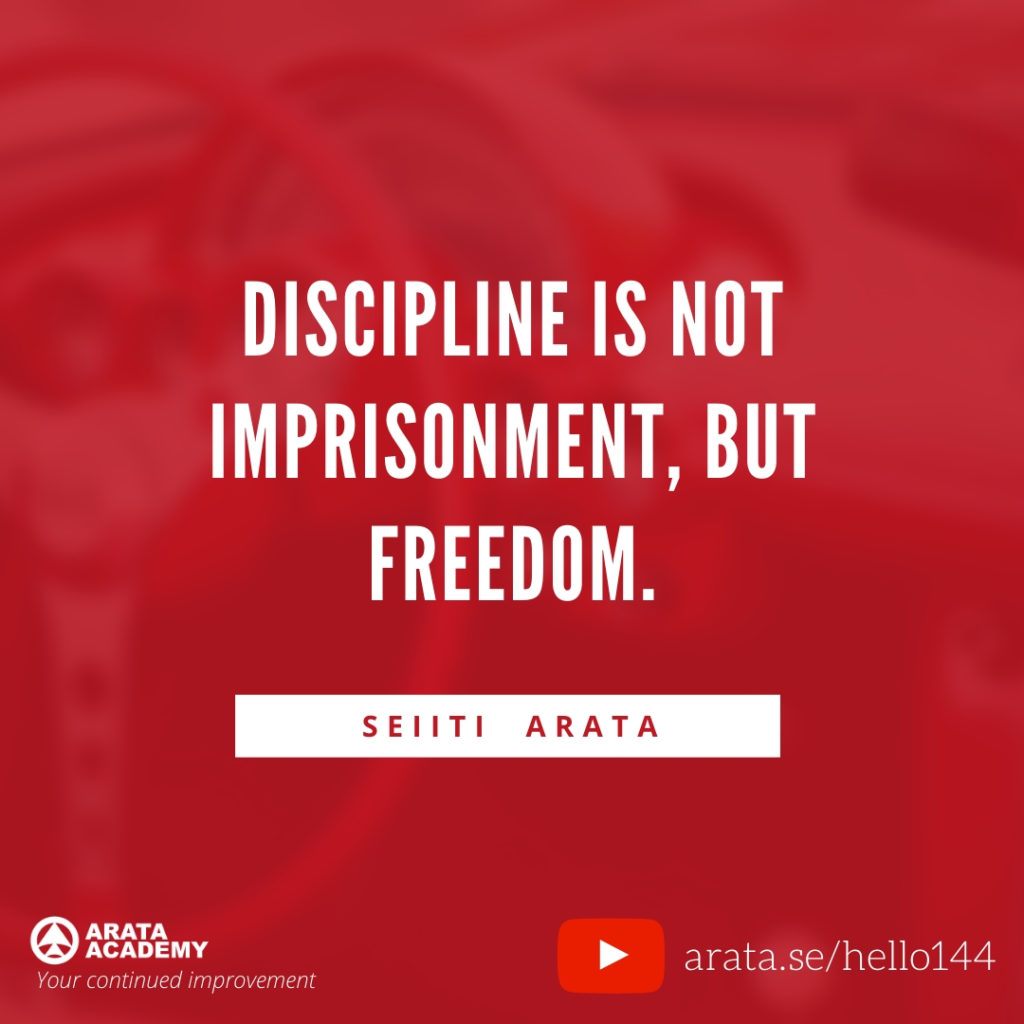
If you are having difficulty finding discipline in your life, remember this three-phase model: first comes awareness, then action, and only at the end does discipline complete the process. So first make sure you have the awareness and action phases well implemented.
I will now give you four steps that will be helpful for the third phase, the strengthening of discipline.
4 steps to have discipline every day.
1. Understand your true motives.
The first step in knowing how to have discipline every day is to have a strong enough why.
Why do you want to lose weight? Why do you want to read more books? Why do you want to learn another language?
When we set goals, most of us go straight to the “what”. For some reason, we tell ourselves that we want a slimmer body. We want to read more books. That we want to be multilingual.
There are few who ask why. Why do we want to do all this?
When your motivation becomes clear, everything is easier. Often the real reason is not so apparent. You say you want to lose weight to look better, but maybe that’s one way you think you need to have more confidence, for example.
So deeply investigate your true motive, what lies behind what you want to do. And write on paper so that it is really clear and structured. If you just perform this first step in your head, without writing, everything will remain confusing and you will soon forget the reasons why you made the decision to change.
2. Create an environment that favors discipline.
If you live in a place full of candies in the shelves, with a giant television in the middle of the room and the always-on computer with a social network as your homepage, it will be much harder to get in shape, read more books, or browse the internet less.
An easy way to have more discipline is for you to change your home, your workplace, or even your computer and mobile settings to create an environment of inevitability, a physical and virtual place where you inevitably do what you have to do.
Make it difficult to access instruments that hinder your goals. Facilitate access to the means that facilitate your goals. This can make all the difference.
You must make distraction difficult to focus on the action.
3. Make effective planning.
It is much easier to know how to have daily discipline if you first work out a change plan to fulfill the transformation you want.
This planning can be done by yourself or with the help of a mentor, a good professional or anyone who has already achieved what you want to achieve.
Simply put, your plan should contain the situation you are in today, the situation you want to achieve, and the steps you need to get from one point to another.
Don’t worry about making perfect planning, trying to anticipate all steps and obstacles. This is impossible. Do the best you can do now, start executing the plan, and set the plan on track as you need it.
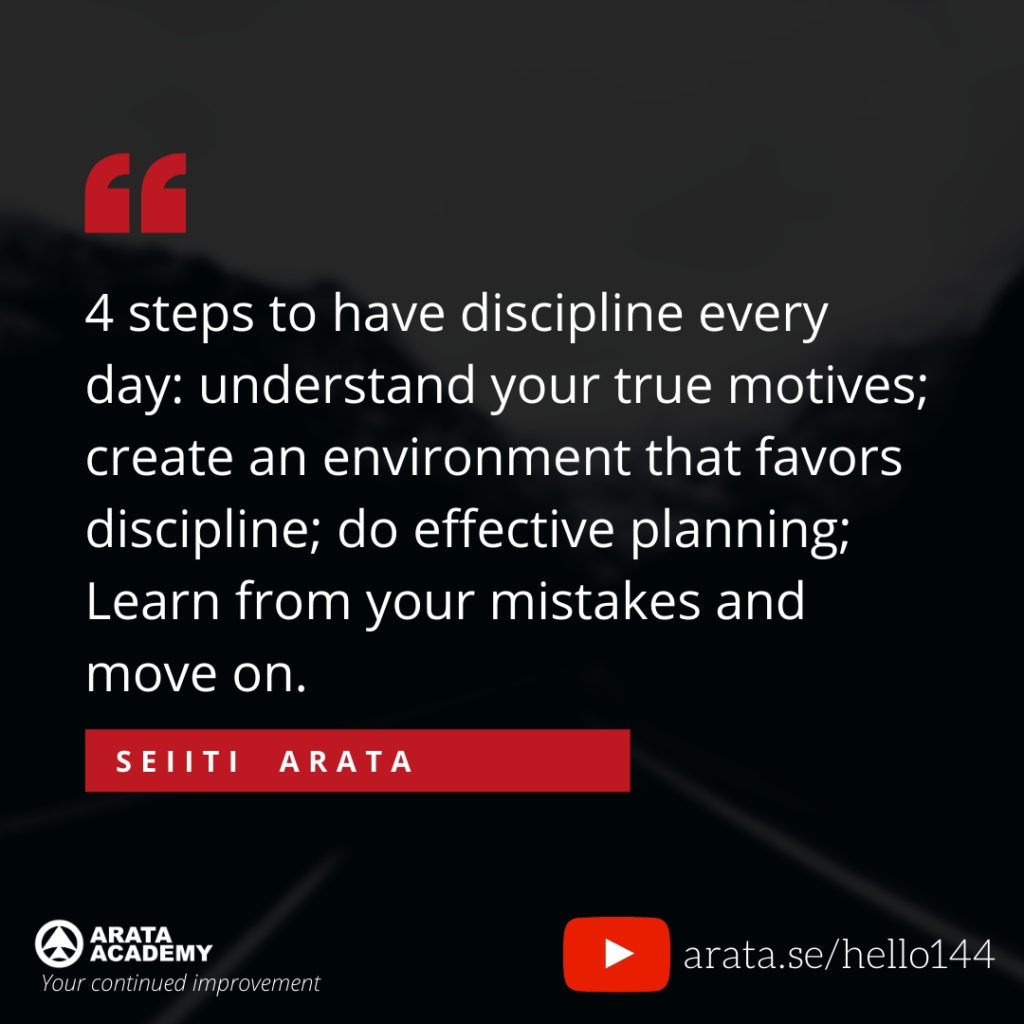
4. Learn from your mistakes and keep going.
No matter what goal you want to achieve, the only certainty is that sooner or later your discipline will fail.
Change is no easy task. In fact, it is one of the biggest challenges that humans can face.
Our brain will always prefer to save energy and stay in its comfort zone. It is an evolutionary question, linked to survival. So whenever you try to change and expand your comfort zone, the brain reacts by making excuses, procrastinating, or using other devices to get us back into less energy-consuming behavior. And that leads us to mistakes.
What you need to do here is accept your mistakes, learn from them and keep going. When you accept that you are going to make a mistake early on, it keeps you from over-stressing or going into crisis when things don’t go as planned.
When the mistake happens, no worries. Just get up and start over. Always keep advancing without quitting.
Remember the importance of being clear. Keep a journal and record what you are learning and how it is evolving. If necessary, rewrite your goals every day until the goals are rooted in your mind. Rewrite your reasons not to lose sight of what you are looking for.
Do this day after day, week after week, and soon those distant dreams that are just in your head today will become a concrete reality much sooner than you think.
Having discipline is not easy, but it is an art that will make you achieve your big goals much faster and more effectively.
When this transformation happens and your comfort zone expands, discipline becomes freedom.
To achieve this, remember not to rely on willpower alone, and follow the four steps to discipline each day: understand your true motives, create an environment that favors discipline, plan effectively, and learn from your mistakes so you keep advancing.
A great way to use what you have learned here is when you are plotting New Year’s resolutions that really work. If you would like some help with this, take a look at the special class of Better New Year by going to https://arata.se/betternewyear
